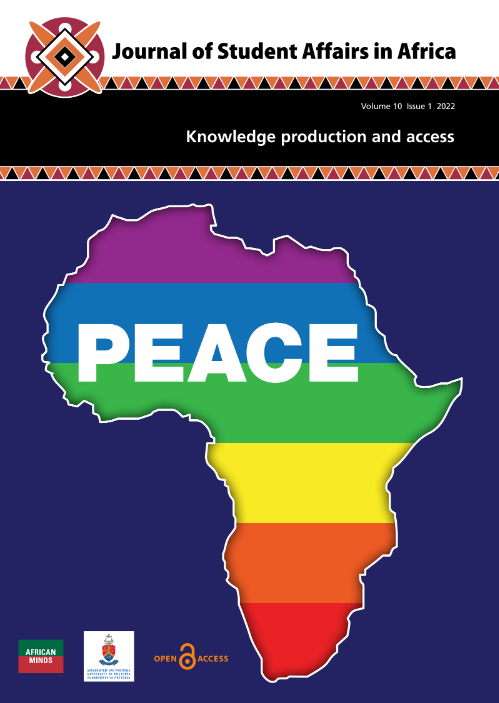A Case Study of Student Hooligan Behaviour during Protest Action at the University of KwaZulu-Natal
DOI:
https://doi.org/10.24085/jsaa.v10i1.2195Keywords:
Crowd control, hooliganism, protest, security services, student activism, students, university leadership, university management, violence, riot policingAbstract
This article focuses on the behaviour of students during protest action at the University of KwaZuluNatal (UKZN). The objectives of the study on which the article is based were to assess factors that contribute to student hooliganism and to evaluate the effects of violent student protests on the university community. The data were collected using interviews with 25 purposefully sampled participants including 20 students and five risk management personnel. The data were analysed using descriptive writing and identifying actively generated themes from the participants’ responses. The study found that a private security service and the South African police service actively instigated violence on campus as a means to disperse the crowd, and that the crowd retaliated with violence. It was also found that the university management’s ignorance of students’ grievances caused students to be violent and exhibit hooligan behaviour to attract management’s attention. Victims of violence experienced physical injury and destruction of their property, which inevitably affected them psychologically, academically and behaviourally. It is recommended that security personnel are trained to control crowds without using violence, and that university management resolve student grievances promptly before they lead to violent protesting.
Downloads
Published
Issue
Section
License
Copyright (c) 2022 Siphesihle Mbhele, Professor Ephraim Kevin Sibanyoni

This work is licensed under a Creative Commons Attribution-NonCommercial-ShareAlike 4.0 International License.
Authors who publish with this journal agree to the following terms:
Authors retain copyright and grant the journal right of first publication with the work simultaneously licensed under the Creative Commons Attribution Share-alike 4.0 International License that allows others to share the work with an acknowledgement of the work's authorship and initial publication in this journal.
Authors are able to enter into separate, additional contractual arrangements for the non-exclusive distribution of the journal's published version of the work (e.g., post it to an institutional repository or publish it in a book), with an acknowledgement of its initial publication in this journal.
Authors are permitted and encouraged to post their work online (e.g., in institutional repositories or on their website) prior to and during the submission process, as it can lead to productive exchanges, as well as earlier and greater citation of published work (See: The Effect of Open Access).


